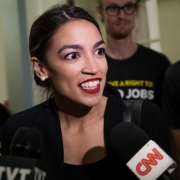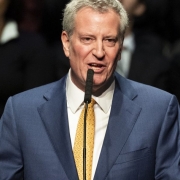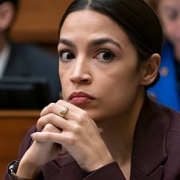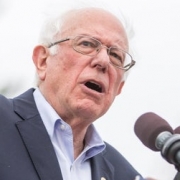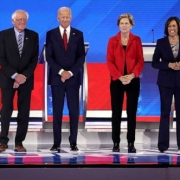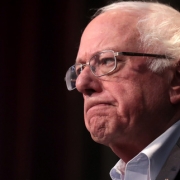There he wrote nine books, including a collection of essays. “The State” caught the attention of Nobel laureate James M. Buchanan, who appreciated its “flint-hard” analysis and gave it a laudatory review in the journal Public Choice.
“The State” challenges some long-held certainties about politics and economics. Western societies tend to believe that elections matter, and citizens spend a lot of time debating the relative merits of being governed from the right or the left. Lately that debate has morphed into a contest between elites and populists.
Jasay argued that particular leaders matter far less than might be supposed and that all governments ultimately seek to maximize their discretionary power.
That might seem like too sweeping a generalization, but consider how economists think about businesses. A corporation is a complex human venture. Managers and stockholders may have conflicting interests. Individuals within the company can have a large effect on its direction, particularly in smaller or younger firms. Still, most economists rightly assume that every company’s goal is to maximize profits. It is a simplification, but a useful one for understanding the decisions businesses make.
Similar simplifications apply to the study of governments. Bureaucracies are hardly homogenous. Different groups may fight for resources and power. Politicians differ, sometimes sharply, in ideas and character. But governments—like businesses—have basic structural tendencies. The state always seeks to expand.
Redistribution, Jasay maintained, is “addictive.” The moment government starts giving out goodies, the mechanisms undergirding society and the economy change. Corporations and interest groups have a new incentive to work to win the state’s favor. So businesses tend to shift resources and attention from engineers to lawyers, from serving customers to capturing decision makers. “The greater the reach of the state, the greater is the scope for profiting from its commands,” Jasay wrote.
While free riders usually meet disapproval in markets and social settings—party crashers get thrown out, and companies work to close profit-losing loopholes—they serve politicians just fine. When you’re looking for votes, handouts are an easy way to get them. And the more pervasive the government, the harder it is for voters to notice new entitlements or the costs they impose. “When another ‘free rider’ is allowed to come on board, the ‘paying passengers’ have every chance of remaining oblivious of the fact, as well as of its incidence on the ‘fares’ they have to pay,” wrote Jasay.
But isn’t a little bit of redistribution necessary in any society? The state may take care of rent-seeking interest groups, but it also pays for roads, education and other public goods. True, but as Jasay explained, you can’t have one without the other. Any political system allowing the government to intercede in the economy will cause a bidding war between corporations and interest groups, which drives an increase in the amount of redistributed resources.
Certainly a good constitution could be of some help in constraining a government’s growth. So thought American classical liberals, from the Founding Fathers to Buchanan. Yet as Jasay explained, the state isn’t like Ulysses, who bound himself to the mast of his ship to keep from following the lure of the sirens’ song. For one thing, Ulysses feared the sirens, while the state profits from ever-growing spending—at least in the short term, which is all many politicians consider. For another, once bound, Ulysses can’t undo his shackles. Only his shipmates can release him. The government, on the other hand, “being at the same time the monopolist of all law enforcement, can always untie itself.”
Jasay wrote “The State” during the Thatcher and Reagan years, when the political winds blew against the idea of ever-bigger government. He acknowledged the existence of ideological differences but believed the structural momentum of a state was stronger than ideology. “Ideology,” Jasay remarked, “will sooner or later providentially issue the licence for precisely the sort of action which it is efficient for the state to undertake.” That is, the state always finds a way to justify its growth.
Today, right-wing nativists and left-wing multiculturalists both court a stronger role for government. Restricting immigration means restricting economic activity—without the right papers, you’re out of a job. Offering special protections to special groups requires multiplying laws and enforcement mechanisms. Neither side seriously and consistently argues for smaller government.
Political realists like Jasay are often dismissed as Cassandras because they are passionate debunkers of all political delusions. But we won’t face up to our real political challenges without their reminders of what’s true.
Mr. Mingardi is director general of Istituto Bruno Leoni, Italy’s free-market think tank, an adjunct scholar with the Cato Institute, and a scholar in political theory at Chapman University.
Appeared in the February 5, 2019, print edition of WSJ.

